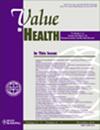衡量智障人士的医疗保健经历:工具和方法的快速证据综述。
IF 4.9
2区 医学
Q1 ECONOMICS
引用次数: 0
摘要
目标:患者报告体验测量(PREMs)为服务和整个系统的质量改进和绩效监控收集重要数据,以实现以价值为基础的医疗保健。然而,全系统范围的 PREMs 和全服务范围的 PREMs 数据往往忽略了智障人士的体验,而智障人士的医疗保健使用率较高,治疗效果较差。在智障人士中使用 PREMs 工具收集数据的问题尚未得到探讨。本综述旨在确定和综合用于收集智障人士患者报告体验数据的测量工具和方法:方法:采用快速证据评估(REA),对电子数据库和灰色文献采用综合搜索策略。对纳入的文章进行叙述性综合,以实现综述目的:结果:共纳入 48 篇文献,其中 26 篇为同行评审期刊论文,22 篇为灰色文献。主要采用定性方法从智障人士那里收集了与特定服务或遭遇有关的患者报告经验。迄今为止,还没有针对性的服务或全系统调查。现有的针对特定诊所和病症的工具可为更广泛的应用提供启示:智障人士的患者体验评估需要考虑 a) 如何识别和接触患者;b) 测量工具的内容、设计和结构;c) 数据收集过程;d) 如何应用这些数据来创造改变。尽管从智障人士那里收集了患者体验数据,但关于这些信息日后如何用于支持医疗服务改进的研究却很少。将 PREMs 应用于质量改进,对于实现改善智障人士医疗保健服务、提高公平护理质量至关重要。本文章由计算机程序翻译,如有差异,请以英文原文为准。
Measuring Healthcare Experiences Among People With Intellectual Disability: A Rapid Evidence Synthesis of Tools and Methods
Objectives
Patient-reported experience measures (PREMs) collect essential data for service and system-wide quality improvement and performance monitoring toward value-based care. However, the experiences of people with intellectual disability, who have high healthcare utilization couple with poorer outcomes, are often omitted from system-wide PREMs and service-wide PREMs data. The use of PREMs instruments for data collection among people with intellectual disability has not been explored. This review aimed to identify and synthesize measurement tools and approaches that have been used to gather patient-reported experience data from people with intellectual disability.
Methods
Rapid evidence assessment was used, in which comprehensive search strategies were applied to electronic databases and gray literature. Narrative synthesis was used with the included articles to address the review aim.
Results
A total of 48 documents were included; 26 peer-reviewed journal articles and 22 articles from gray literature. Patient-reported experiences have been gathered from people with intellectual disabilities in relation to specific services or encounters, predominantly using qualitative methods. To date, there is an absence of targeted service- or system-wide surveys. Existing clinic- and condition-specific instruments provide insight for broader application.
Conclusions
Patient experience assessment among people with intellectual disability requires consideration of (1) how individuals are identified and approached, (2) the content, design and structure of measurement instruments, and (3) the process by which data are collected, and (4) how it may be applied to create change. Despite the collection of patient experience data from people with intellectual disability, there is little research available about how this information is later used to support health service improvement. Applying PREMs for quality improvement is critical to realize the improvements to healthcare provision required for people with intellectual disability toward equitable care quality.
求助全文
通过发布文献求助,成功后即可免费获取论文全文。
去求助
来源期刊

Value in Health
医学-卫生保健
CiteScore
6.90
自引率
6.70%
发文量
3064
审稿时长
3-8 weeks
期刊介绍:
Value in Health contains original research articles for pharmacoeconomics, health economics, and outcomes research (clinical, economic, and patient-reported outcomes/preference-based research), as well as conceptual and health policy articles that provide valuable information for health care decision-makers as well as the research community. As the official journal of ISPOR, Value in Health provides a forum for researchers, as well as health care decision-makers to translate outcomes research into health care decisions.
 求助内容:
求助内容: 应助结果提醒方式:
应助结果提醒方式:


